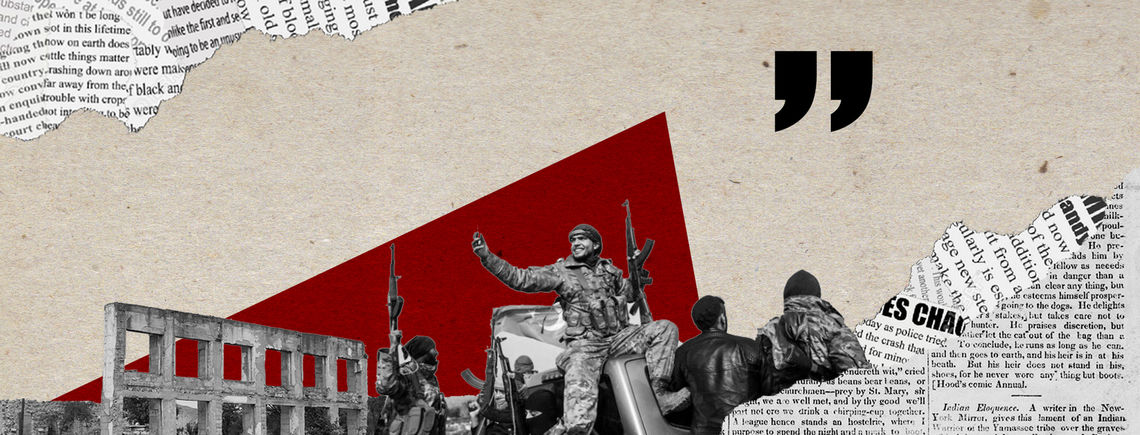

On September 27, Azerbaijan launched a large-scale military offensive along the entire length of the Line of Contact with Artsakh. The rhetoric and the hints coming from the military-political leadership of Azerbaijan over the past several months should have raised red flags for the international community. For example, President Ilham Aliyev’s criticism of the OSCE Minsk Group format and Azerbaijan’s possible withdrawal from the negotiations, escalation of fighting on the Armenia-Azerbaijan interstate border in July or threats from Azerbaijan to hit Armenia’s Metsamor Nuclear Power Plant created fertile ground for the September offensive.
The escalation of the Azerbaijani offensive over the past five days has been unprecedented in its scale, the military hardware used and the wide geography it has covered. The offensive of the Azerbaijani Armed Forces not only unfolded on the territory of Artsakh but also within the internationally recognized borders of Armenia, in the wider Vardenis area of the Gegharkunik region, in particular. Based on the information from the Defense Ministry, tanks, heavy artillery, armored vehicles, military helicopters and aircraft, UAVs and missiles have been used by the Azerbaijani Armed Forces.
On September 28, Reuters and The Guardian published articles outlining evidence that Turkey is recruiting and sending Syrian rebel fighters to support Azerbaijan in its escalating conflict with Armenia. In an interview with Reuters, two rebel fighters said that Turkey is facilitating and coordinating their deployment to Azerbaijan. Both of them fought as part of militant groups in Syria backed by Turkey (one for Ahrar al-Sham, the other for Jaish al-Nukhba affiliated by the Syrian National Army). The two fighters told Reuters that although they did not initially want to go, they were promised a $1,500 monthly wage, a sizeable amount considering Syria’s dire economic situation. They also said that up to 1,000 Syrian rebel fighters were expected to be deployed to Azerbaijan. On the same day, Vardan Toghanyan, Armenia’s Ambassador to Russia, told a Russian publication that over 4,000 mercenaries have already been deployed by Turkey to Azerbaijan and are participating in military operations against Artsakh.
The three Syrian fighters The Guardian spoke with, said that they were hired by a private Turkish security firm to work as border guards in Azerbaijan. Similar to the two rebel fighters that Reuters had spoken with, these three also mentioned economic concerns as the primary driving force for considering the offer. They were offered between $900 to $1,300 a month. “When we first started being offered work abroad in Libya, people were afraid to go there, but now there are definitely thousands of us who are willing to go to either Libya or Azerbaijan,” said one of the fighters. The article notes that the recruitment began about a month ago. Two of the fighters were offered a three or six month contract to guard the oil and gas facilities in Azerbaijan but were not told exactly what the job would entail or which security firm they would work for. The article says that some workers that were recruited to be security guards in Libya eventually ended up fighting on the frontlines.
The Guardian cites sources from the Syrian Observatory for Human Rights, which works to document human rights abuses in Syria, and the Syrian National Army to say that approximately 500 Syrian rebel fighters are already in Azerbaijan. According to the Washington Post, 20 such fighters were allegedly killed during the hostilities this week.
Two of the OSCE Minsk Group member states, Russia and France have commented on the alleged participation of Syrian rebel fighters in the hostilities along the Artsakh-Azerbaijan Line of Contact. The Russian Foreign Ministry issued a statement saying that militants from illegal armed groups in Syria and Libya are being transferred to the Nagorno-Karabakh conflict zone in order to directly participate in hostilities. “We are deeply concerned about these processes, which lead not only to an even greater escalation of tension in the conflict zone, but also create long-term threats to the security of all countries in the region,” said the statement. The Foreign Ministry called on the leadership of the states involved to take effective measures to prevent the use of foreign terrorists and mercenaries in the conflict, demanding their immediate withdrawal from the region. At the Council of Europe, French President Emmanuel Macron said his country has evidence that Syrian Islamists from Turkey are participating in military activities in Nagorno Karabakh [Artsakh]. He said: “We have concrete information stating that the Syrian militants left the battlefield in Gaziantep to join the battles in Nagorno Karabakh. This is very serious and we will discuss it at today’s EU summit.” He also added that France is doing everything to transport their two wounded journalists back. Macron also had a phone conversation with Russian President Vladimir Putin and the two agreed to work together to reach a ceasefire within the framework of the OSCE Minsk format.
Azerbaijan was quick to dismiss the claims about the involvement of Syrian mercenaries in the military offensive against Artsakh. “Rumors of militants from Syria allegedly being redeployed to Azerbaijan is another provocation by the Armenian side and complete nonsense,” said Hikmet Hajiyev, assistant to the Azerbaijani President Ilham Aliyev. Although Turkey has not yet officially dismissed the information, Turkish President Recep Tayyip Erdogan has said that Turkey will support Azerbaijan with all its means, within the principle of “two states, one nation.” He also said that “peace can be achieved” only if Armenian forces completely withdraw from Nagorno Karabakh, a demand that is not likely to be met.
It should be mentioned that radical Islamist mujahideen fighters from Afghanistan fought alongside Azerbaijan against Armenians in Artsakh in the early 1990s.

